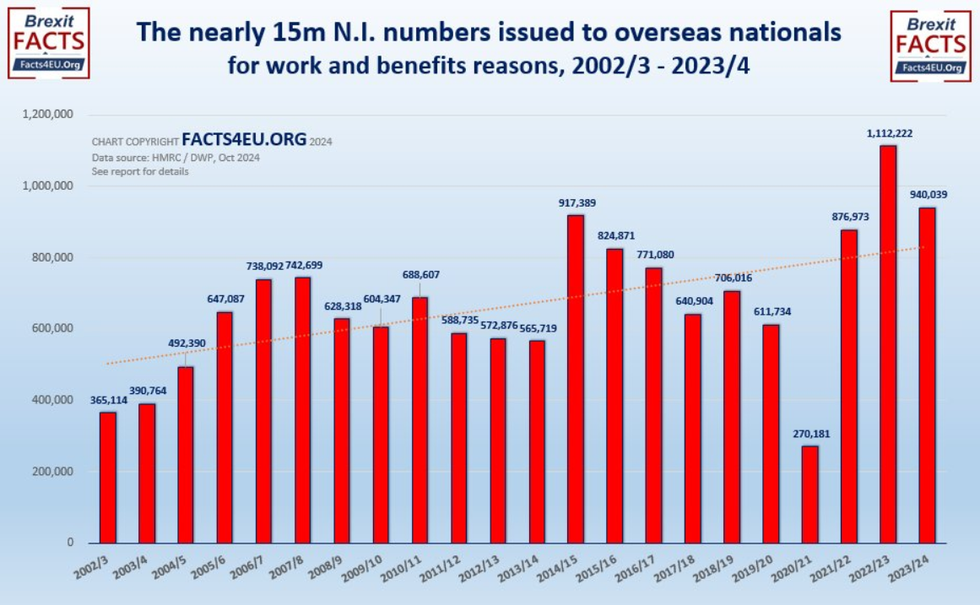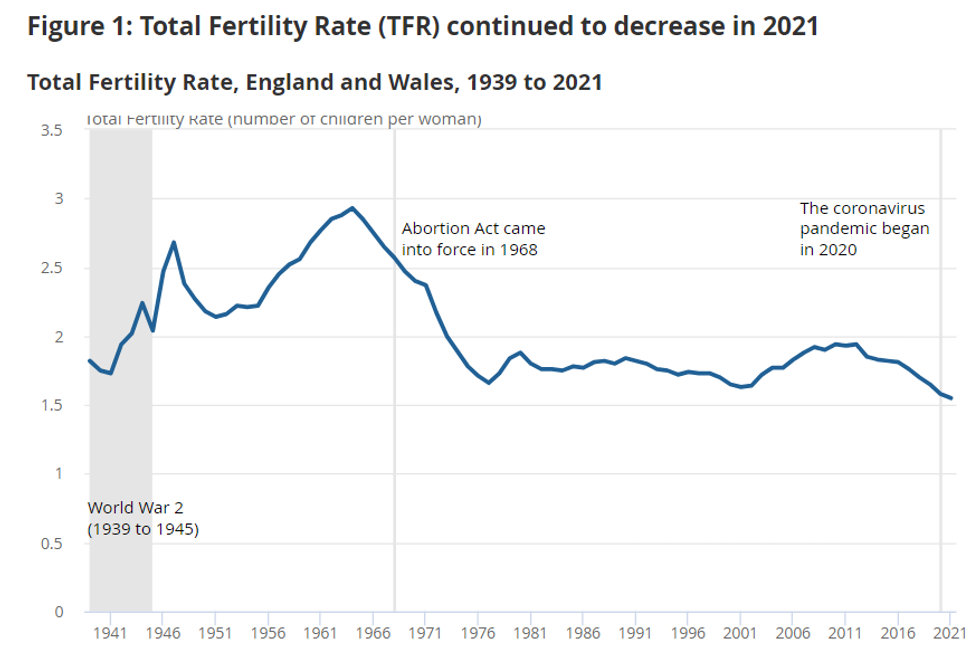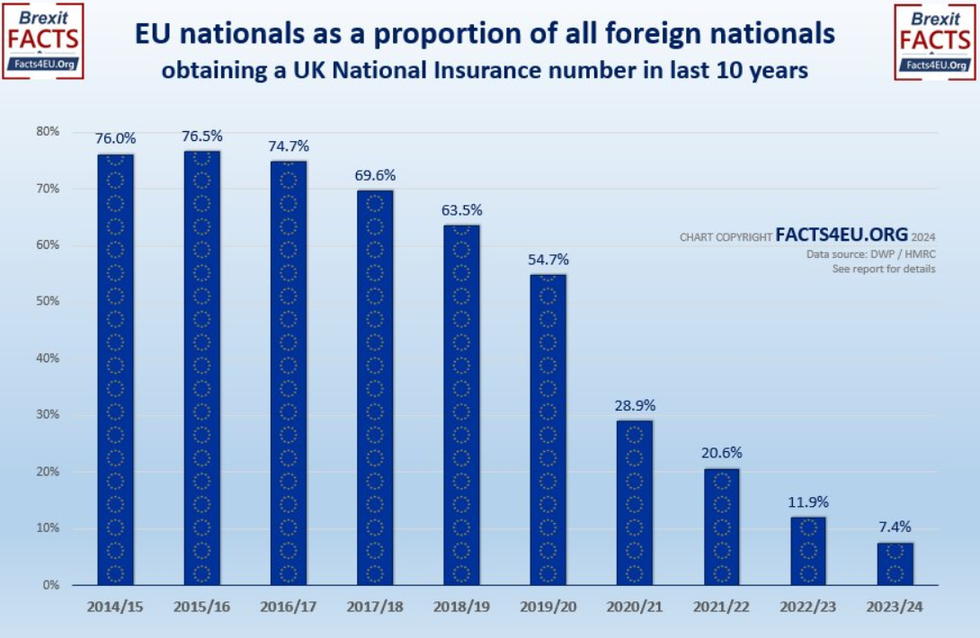Adam Hart
Guest Reporter

Shocking new data has revealed 14million overseas nationals have been issued National Insurance (NI) numbers over the last 20 years, with over one million issued in 2022/23 alone.
Over the same period, Britain’s population has risen by more than 10 million, despite falling birth rates.


The new NI number statistics, compiled in partnership with Facst4EU and CIBUK, have been collected from HMRC and the Department for Work and Pensions.
The data also reveals the breakdown of nationalities receiving NI numbers showing a drastic reduction in the amount of EU nationals coming to Britain but a sharp increase in non-EU.
In 2014/15, 76 per cent of all new NI registrations were being issued to EU nationals, but that figure now stands at just 7.4 per cent. This means 96.6 per cent of NI numbers issued in 2023/24 were to non-EU nationals.
This is largely due to Britain leaving the EU in 2020/21, ending freedom of movement across Europe.

The fact that the number of NI numbers being issued remains so high demonstrates a surge in non-EU nationals coming to Britain from countries like Pakistan, Afghanistan and Nigeria who are more than making up the deficit.
This is backed up by the ONS’s latest estimates which show in the year ending June 2023, 7% of people migrating to the UK were British nationals, 11% were nationals of EU countries, and 82% were nationals of non-EU countries.
The UK’s migrant population is concentrated in London. Around 35 per cent of people living in the UK who were born abroad live in the capital city. Similarly, around 37 per cent of people living in London were born outside the UK, compared with 14 per cent for the UK as a whole.
NI Numbers are vital as they allow someone to:
- Work
- Claim state or housing benefits
- Apply for a student loan
- Vote in local or national elections
- Pay Class 3 voluntary National Insurance contributions
This is the first time any media organisation has brought the public the exact figures for the numbers of overseas nationals who have received National Insurance numbers.
This revealing new data comes as Britain is gripped in a national debate over immigration fuelled in part by surge in migrants crossing the channel in small boats.
Almost 30,000 people have crossed the channel this year, part of 180,000 who have since 2018. Over 50 migrants have drowned making the journey, with at least three losing their lives this past week.
LATEST FROM MEBERSHIP:
- UK businesses already closing doors amid fears over Rachel Reeves looming Budget
- Rachel Reeves tax raid: Four steps to take NOW to protect your cash from Autumn Budget
- POLL OF THE DAY: Has Labour declared a class war on middle Britain? - VOTE NOW
Immigration sceptics believe the high levels of migration are placing acute strain on the NHS, housing, schools and other public services, while others point to crimes committed by immigrants who should have been deported or denied entry for the dangers they posed.
A YouGov poll in August found immigration to be the "most important national issue” for voters in the UK for the first time since 2016, outstripping the economy, crime and health.
Tensions over migration have led to calls for Britain to leave the ECHR, the convention which allows migrants to claim asylum in Britain on humanitarian grounds. Critics believe the ECHR prevents Britain from controlling its borders effectively, damaging its sovereignty in the process.
Boris Johnson and Reform leader Nigel Farage have called for a nationwide referendum on whether Britain should remain a member.
The Home Office and the Department for Work and Pensions have been approached for comment.
Find Out More...